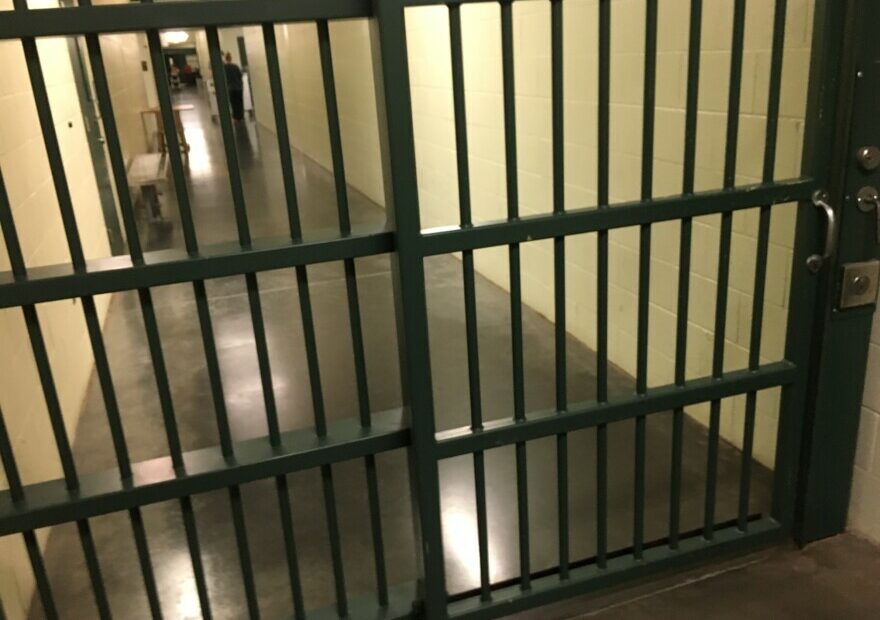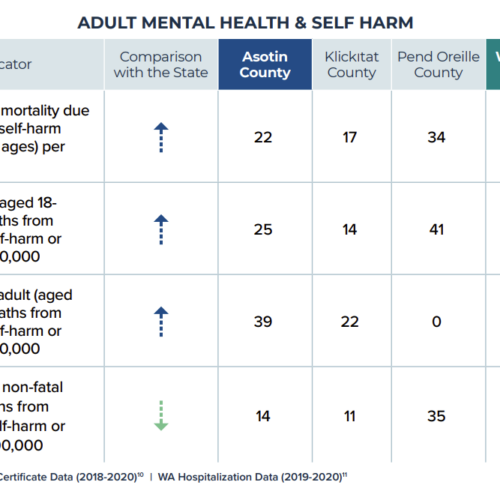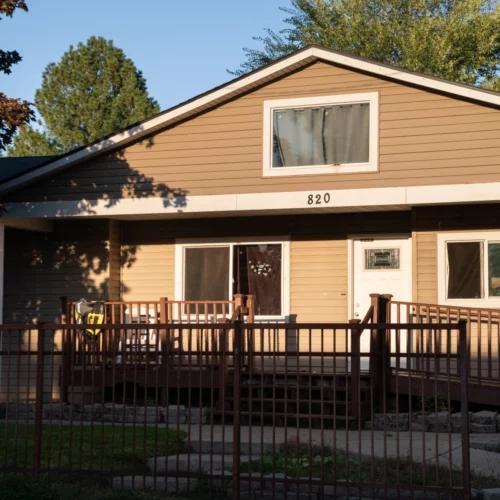
Jails In Washington And Oregon Have Higher Suicide Rate Than National Average
READ
Since 2000, more than 200 people have died by suicide in Washington and Oregon jails putting the Northwest states above the national average for jail suicides, according to a new report by the federal Bureau of Justice Statistics.
From 2000 to 2019, the average rate of suicide in jails nationally was 43 per 100,000 inmates. By contrast, Oregon’s jail suicide rate during that same time period was 48 per 100,000. In Washington it was 57 per 100,000.
In Oregon, the study found, the jail suicide rate leapt up to 70 per 100,000 from 2015 to 2019. Washington logged its highest rate, 79 per 100,000, during the 2010 to 2014 timeframe.
Despite exceeding the national average, suicides in Washington and Oregon jails over the two decades happened at a lower rate than in two other western states. In Utah, the jail suicide rate was 80 per 100,000 and Montana recorded 120 suicides per 100,000, according to the report.
Among western states, Arizona and California reported the lowest rates of jail suicides during the same time period.
Nationally, suicide accounted for 24 to 35 percent of deaths in local jails between 2001 and 2019, the report said. In 2019, nearly 30 percent of U.S. jail deaths were due to suicide.
The peak came in 2015 when the suicide rate in U.S. jails reached 52 per 100,000 inmates. But overall, the national rate of suicide in jails was mostly unchanged in 2019 as compared to 2000.
The report also found that, nationwide, white inmates were five times more likely to die by suicide in jail than Black inmates, and 3.5 times more likely than Hispanic inmates.
Most jail suicides happened within the first 30 days of a person being behind bars. Hanging or strangulation was the most common manner of death.
Nearly 77 percent of the people who died by suicide in U.S. jails had not been convicted. Jails are the entry point to the criminal justice system and often hold individuals who are awaiting trial.
The new federal report comes 18 months after OPB, KUOW and the Northwest News Network published a first-of-its-kind investigation into Northwest jail deaths. That investigation, “Booked and Buried,” found that since 2008 at least 306 people had died after being taken to a county jail in Oregon or Washington. Suicide was by far the leading cause of death accounting for nearly half of all cases with a known cause of death.
The news organizations also found that the rate of jail deaths in the two states had been trending upwards since 2008. The report looked at people who died in jail, as well as those who died after being taken to the hospital from jail.
Among the findings of the “Booked and Buried” investigation was that jails are frequently outdated, underfunded and understaffed — conditions that can lead to preventable deaths that often go unexamined.
The quality of health care in jails can also vary greatly despite the fact jails house some of the most complex and vulnerable people in society, including those with acute mental health and substance use disorders.
In Oregon, jails must adhere to a set of statewide standards and are subject to outside inspection. By contrast, Washington jails are required to develop their own standards to ensure the health, welfare and safety of inmates.
In the wake of the “Booked and Buried” investigation, Oregon Gov. Kate Brown signed into law a requirement that local and regional jails provide the state with information about who’s in their custody, along with details about the health care the inmates receive.
This year, Washington enacted a law that requires jail officials to conduct a fatality review anytime a person in custody dies unexpectedly. Those reviews must be completed within 120 days and be posted to a public website maintained by the state Department of Health.
If you or someone you know is contemplating suicide, call for help now. The National Suicide Prevention Hotline is a free service answered by trained staff. The number is: 1-800-273-8255.
This story includes information from OPB, KUOW and Northwest News Network archives.
Related Stories:

Asotin County assessment shows needs in mental health, housing, substance use treatment
An assessment by the Asotin County Health District shows that mental health, housing and aging in place, along with substance use, are some of the largest health issues facing the community.

Rape, beatings and racial slurs: None of it was enough to shut down this Idaho youth facility
Employees at Cornerstone Cottage alerted state officials to the dangers, only to be fired themselves Cornerstone Cottage opened in 2016 in Post Falls, Idaho, a booming bedroom community 25 miles

Wildfires can impact your mental health
Wildfires can be frightening and result in overflowing emotions. Fear, anxiety and even depression can arise before, during and after these natural disasters, but specialists say there are still resources to cope with the trauma that environmental emergencies can cause.
















